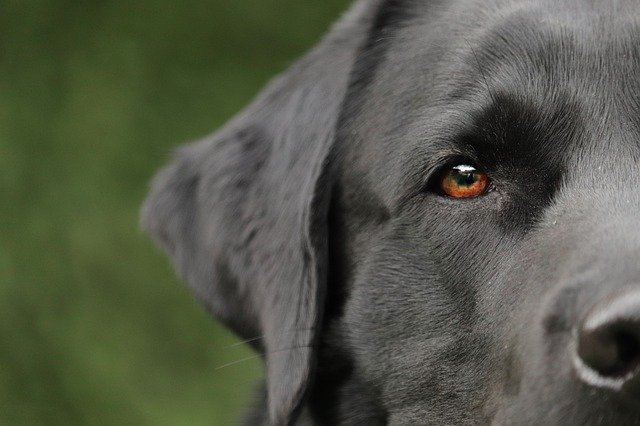
A happy and healthy life for your puppy requires socialization. Your puppy who is shy will struggle to learn basic training, and not understand your commands. This problem can be overcome by building puppy confidence. Socializing your puppy early and slowly is key to ensuring it doesn't become anxious or afraid. As a young puppy, your pup will be bombarded with a variety of stimuli, including loud noises and strange smells.
It is imperative to start the puppy's socialization at a young age. You can take your puppy on walks and out for lunch with family members. This will allow him to experience as many different situations and environments as possible. You could also arrange a playdate with your dog's friend or family member. Make sure you give your puppy treats at these events. As they become more used to the new environment they will be less anxious.

Puppy socializing should be done regularly during the early stages of a puppy's life. As puppies get older, it will be more important to expose them to new environments. Young puppies can learn to adapt to the world by being exposed to many stimuli. This is vital for a puppy’s development. Start early so your puppy can be socialized with other dogs and learn good manners.
Begin with a small number of people when introducing your puppy to new people. You should introduce your puppy to as many people as possible. Then, gradually increase the number of people you introduce him. This way, he will be used to meeting a variety of different types of people and learn to accept all sorts of different personalities. Your puppy will be more comfortable with other people and will become more loving and accepting. As he grows up, socializing will give him many other skills.
Be gentle and patient when socializing your puppy. Your puppy might be excited for new experiences, but also scared. Do not force your puppy to be afraid. It will feel overwhelming to your puppy, and he may even avoid your home altogether. In order to prevent unwanted associations, it is important that your puppy be socialized with other pets. You can play games with your puppy at home or in public.

Puppies have a natural fear of new environments. Their bodies are designed to get used to their environment, so avoid overwhelming them with new experiences. Before they meet new people, let them settle in. They can easily get overwhelmed or overstimulated by the sounds that they hear. Being gentle with them will help them grow up to be kind and loving. You should make sure that they are safe when you take them outside. Although they may be scared of the sounds around them, they will still need to be exposed.
FAQ
How to train a pet
Consistency is the most important aspect of training a cat or dog. You need to be consistent in how you treat them. If they think you're mean they won't trust you. They might start to believe that everyone is mean.
They will not know what to expect if you're inconsistent with your treatment. They could become anxious around other people if this happens.
Positive reinforcement is a great way to teach your dog or cat. Positive reinforcement will make your pet want to continue doing the same thing.
When they do something wrong, it is easier to punish them than reward them.
Good behavior should be reinforced with treats, such as food and toys. It is also a good idea to praise when possible.
Clickers can be used for training your pet. Clicking allows you to tap on a button and tell your pet that it was successful.
This is because clicking indicates "good job" to animals.
When teaching your pet tricks, you should first show him the trick. You should then ask your pet to perform the trick and reward him.
Give him praise when he does it right. Be careful not to overdo it. Don't praise him more than once.
You should also set limits. You should not allow your pet to jump on people. Don't let him bite strangers.
Remember always to supervise your pet so that he doesn't hurt himself.
What are your responsibilities as a pet owner?
The pet owner should love his/her pet with all their heart. They must also take care of their basic needs, such as shelter, food, water, and shelter.
They must teach them proper behavior. The pet owner must not neglect or abuse it.
He should also be responsible enough and able to take care of it.
Are there three things you need to keep in mind before you buy a cat?
These questions should be asked before you purchase a cat.
-
Are there any health concerns for the cat?
-
Can the cat eat all of my food?
-
Is it because I am a lover of cats or do you just want a pet to play with?
Statistics
- * Monthly costs are for a 1-year-old female mixed-breed dog and a male domestic shorthair cat less than a year old, respectively, in excellent health residing in Texas, with a $500 annual deductible, $5,000 annual benefit limit, and 90% reimbursement rate. (usnews.com)
- A 5% affiliation discount may apply to individuals who belong to select military, law enforcement, and service animal training organizations that have a relationship with Nationwide. (usnews.com)
- Pet insurance helps pay for your pet's medical care, with many policies covering up to 90 percent of your vet bills. (money.com)
- It's among a relatively few companies that provide policies with a full (100%) coverage option, meaning you are not responsible for any co-payment of bills. (money.com)
- It is estimated that the average cost per year of owning a cat or dog is about $1,000. (sspca.org)
External Links
How To
The best way to tell a dog where it is appropriate to go to urinate.
Teaching your pet how to use the toilet correctly is essential. It is also crucial to be able to teach them how to behave if they decide to go outside on their own. These are some helpful tips for teaching your dog to use the restroom correctly.
-
It is important to start training early. You don't want any injuries during playtime. Start training today!
-
Use food rewards. Your pet will be more successful if you give them a reward after each successful trip.
-
Your pooch's area of peeing should be kept away from treats. This could make your pet associate urine smells with his favorite treats.
-
Before letting your dog go, make sure that there aren't any other animals around. Dogs may be influenced by the behavior of others who relieve themselves.
-
Be patient. Your puppy might take a bit longer to figure things out than a fully grown adult.
-
Before your dog can use the bathroom, let it sniff everything. It will make her learn quicker if she has the opportunity to smell the toilet before entering the bathroom.
-
Don't let your dog stand next to the toilet while you're taking care of business. This could cause confusion.
-
When you finish, wipe down the seat and the floor around the toilet. These areas can serve as a reminder for what to do next.
-
Make sure to clean up all messes as soon as possible. It is important to clean up any accidents quickly and thoroughly. The dog might attempt to vomit again if it isn't cleaned up quickly.